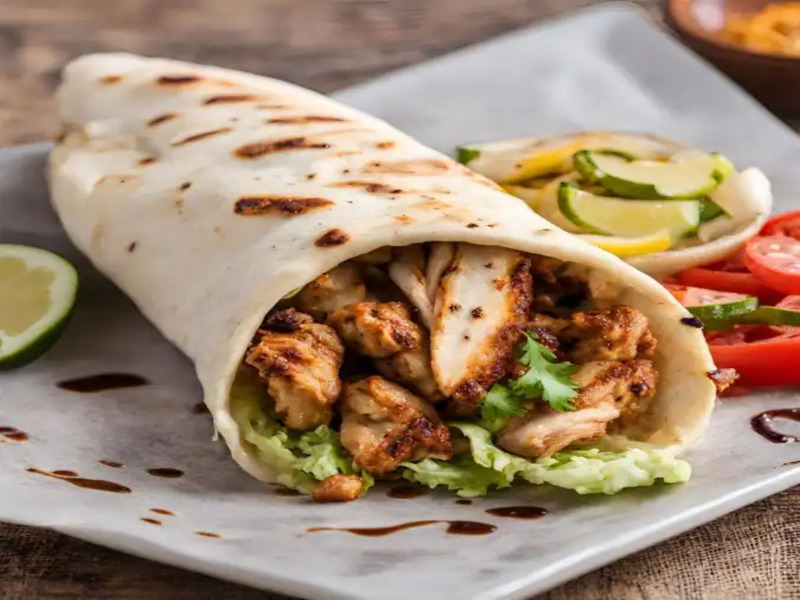Shawarma, a popular Middle Eastern street food in Hyderabad, has come under scrutiny following several cases of food poisoning. Health officials report unhygienic handling, improper meat storage, and lack of regulation among street vendors as key issues, raising concerns about food safety. Authorities now urge caution when purchasing street shawarma.
Shawarma Food Safety Concerns Spark Hyderabad’s Crackdown
Hyderabad’s beloved street food, shawarma, has recently come under intense scrutiny due to rising food safety concerns. On October 17, the Telangana Food Safety Department raided several shawarma outlets in response to multiple foodborne illness reports. These raids revealed alarming violations, leading to temporary closures and heightened public concern over hygiene standards at these popular eateries.
Food Poisoning Outbreaks Lead to Increased Scrutiny
A series of food poisoning incidents in Hyderabad, including a high-profile case at Grill 9, have raised serious alarms. A police inspector and his driver fell severely ill after consuming shawarma from the establishment, along with several other customers. This prompted authorities to take action, and Grill 9 was charged under Section 274 of the Bharatiya Nyay Sanhita (BNS) for food adulteration. Following the incident, a formal complaint was filed, and an investigation by the Karkhana police was initiated.
The Crackdown: Raids and Violations Uncovered
On October 17, the Telangana Food Safety Department carried out surprise raids on several shawarma outlets, including Mujtaba Grills, Shasha Shandar Shawarma, Rolls on Wheels, Sync Shawarma, and Asian Chow. These inspections uncovered serious violations, such as unsanitary food storage, improper labeling, and the use of synthetic food colorants at Mujtaba Grills. Some vendors, including Shasha Shandar Shawarma, were found operating without the mandatory FSSAI license. Additionally, many outlets lacked health certificates for their staff and failed to follow proper procedures for separating raw meats from cooked foods, which increases the risk of cross-contamination.
Health Risks and Unsafe Practices: Expert Insights
Experts have raised concerns about the health risks posed by improperly handled shawarma. Dr. Abdul Aslam, a Hyderabad-based gastroenterologist, pointed out that improperly stored shawarma, particularly when left out for extended periods, can lead to bacterial contamination. He highlighted that raw meats used in shawarma are prone to harboring dangerous bacteria like Salmonella, E. coli, and Clostridium. Cross-contamination, where raw meats come into contact with ready-to-eat foods, is a significant concern. He also warned about the risk of botulinum toxin, which can develop in improperly stored or cooked meat.
Mayonnaise Contamination: A Hidden Threat
In addition to improper handling of meat, mayonnaise used in shawarma has been flagged as a significant source of food poisoning. Dr. Sivaleela, Director of the Telangana Food Safety Department, confirmed that the preparation of mayonnaise with raw eggs has led to bacterial contamination in some cases. Salmonella, a harmful bacterium commonly found in raw eggs, can cause severe illness when consumed. She noted that while mayonnaise is a common ingredient in shawarma, it poses a serious health risk if not prepared or stored correctly.
Regulatory Oversight and Ongoing Inspections
The Telangana Food Safety Department has ramped up inspections to ensure that shawarma vendors adhere to hygiene and safety standards. Dr. Sivaleela emphasized that many vendors are failing to meet the necessary requirements, putting public health at risk. As authorities continue to monitor compliance, further inspections are expected. “We first inspect the unit, identify violations of FSSAI guidelines, and issue a notice to the vendor,” said Dr. Sivaleela, highlighting the department’s proactive approach to safeguarding food safety.
Looking Ahead: Addressing Shawarma Safety Concerns
As the number of shawarma outlets grows in Hyderabad, ensuring food safety has become a top priority for both authorities and consumers. With experts urging greater awareness and stricter regulations, the future of shawarma in Hyderabad hinges on improved hygiene practices, better regulatory enforcement, and greater consumer vigilance.
Lastly, Dr Aslam cautioned about the nutritional content of shawarma. “Shawarma is often high in fat and sodium due to the fatty meats and added sauces. Regular consumption can raise cholesterol levels and contribute to heart disease. High sodium intake is linked to health problems like hypertension and cardiovascular disease, especially when heavily seasoned shawarma sauces are used.” #hydkhabar

